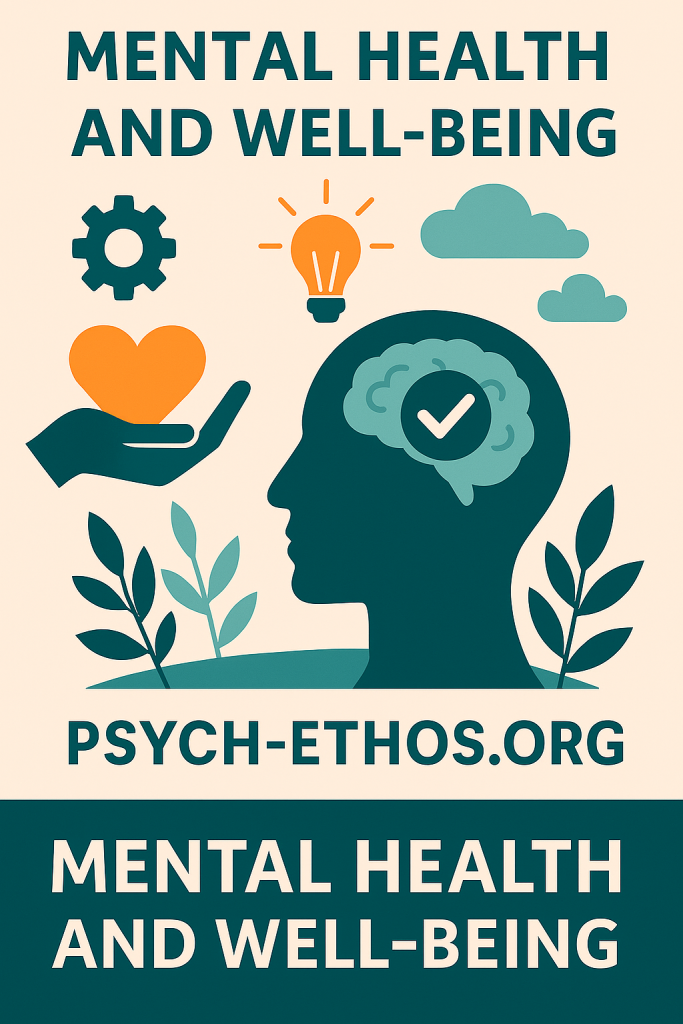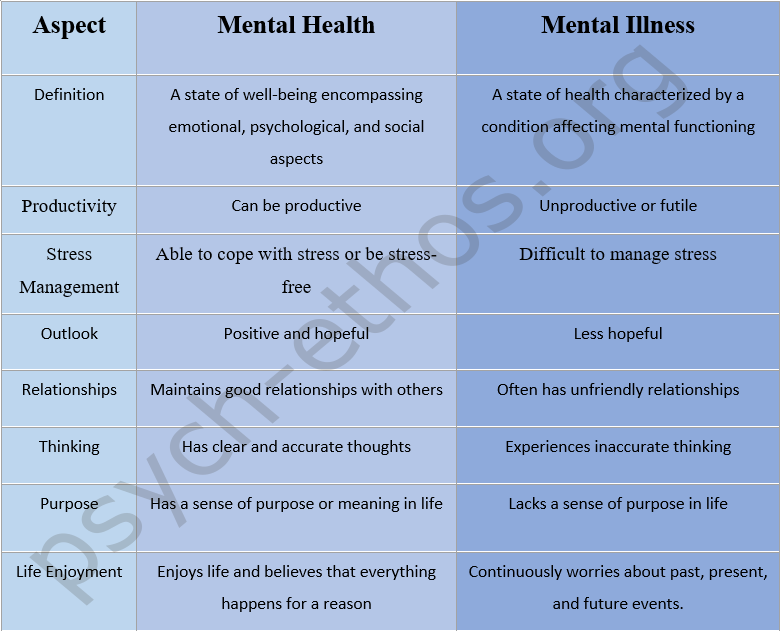
From Awareness to Action: Your Guide to Feeling Good and Living Well
Mental health? It’s about so much more than just not being sick. It’s about truly feeling good in your own skin, handling the everyday ups and downs, and connecting with people in a real way. In this guide, we’ll break down what mental health actually means, why it’s a game-changer in our lives, and the small but powerful things we can all do to look after our minds and support those around us. Forget the complicated terms – we’ll explore the basics, from understanding the difference between just feeling “okay” and thriving, to tackling common hurdles like anxiety and those low moods.
What Exactly Is Mental Health?
Think of it as the engine room of your thoughts, feelings, and how you act. It’s how you deal with stress, connect with others, and make choices every single day. Just like our physical health, it touches every part of our lives. The World Health Organization nails it: mental health isn’t just about not feeling bad; it’s about coping well, realizing what you’re capable of, and feeling like you’re contributing something meaningful to the world around you.
Why Does This Even Matter?
Seriously, your mental state impacts everything you do. Whether you’re whipping up dinner, sitting in a meeting, or helping your kid with homework, your mind is in the driver’s seat, affecting your focus, your patience, and even your energy levels. Ever feel so anxious that even brushing your teeth feels like a mountain to climb? That’s why looking after your mental well-being is key to really living, not just existing.
The Big Three: Pillars of Mental Well-being
- Tuning into Your Emotions: How we show and handle our feelings shapes our experiences. Feeling happy, sad, angry, grateful – and knowing how to navigate those waves – that’s a sign of being emotionally healthy.
- Feeling Good Inside: This is about your inner compass – your sense of purpose, accepting who you are, and the quality of your close relationships. When you feel solid in yourself and supported by your people, you bounce back easier from tough times.
- Connecting with Others: We’re wired for connection. How we relate to friends, family, even colleagues, has a huge impact on our mental state. Those positive social ties? They help us flourish.
Getting to Know Your Own Mind
To really live a happy and full life, understanding what makes your mind tick is crucial. Recognizing what helps you stay calm, focused, and positive gives you your personal toolkit for tackling challenges and building resilience. It’s not about dodging stress altogether (that’s impossible!), but about learning how to handle it with clarity and strength.
What Makes Up Our Mental Health?
- Thinking Clearly (Cognitive Health): This is about how well you think, learn new things, and process information. The American Psychological Association highlights things like:
- Remembering and Learning: Picking up new skills and using them.
- Using Language: Expressing yourself clearly, whether talking or writing.
- Planning and Organizing (Executive Function): Getting things done.
- Staying Focused (Complex Attention): Juggling tasks and knowing where to put your attention.
- Understanding Others (Social Cognition): Reading people’s emotions and behaviours.
- Moving and Sensing (Perceptual and Motor Function): Interacting with the world through your senses.
- Remembering and Learning: Picking up new skills and using them.
- Handling Your Feelings (Emotional Health): This is all about being able to manage your emotions and bounce back from life’s ups and downs with a sense of balance. It means staying hopeful, being aware of what you’re feeling, and knowing when to reach out for support.
- How You Act (Behavioural Health): The way we behave, especially in our relationships and communities, is a big piece of the mental health puzzle. Things like communicating respectfully, setting healthy boundaries, and expressing yourself openly all contribute to a positive behavioural health.
Mental Health vs. When Things Feel Off (Mental Illness)
Think of mental health as a general state of well-being. Mental illness, on the other hand, refers to specific conditions that can throw that well-being off balance. Here’s a quick look:

What Messes With Our Mental Health?
- Our Genes: Sometimes, mental health tendencies can run in families, just like physical ones. Risks for things like anxiety or depression can be passed down.
- Life’s Journey: Tough experiences, neglect, or even supportive environments all leave their mark on our mental well-being. What we’ve been through shapes how we react to stress.
- Family and Friends: Open chats and strong emotional connections build mental resilience. On the flip side, conflict or distance within families can take a toll.
Signs You’re in a Good Place Mentally
- Solid Connections: Relationships that are respectful and fulfilling.
- Keeping Calm Under Pressure: The ability to handle daily stress without it overwhelming you.
- Waking Up Refreshed: Getting good, restorative sleep.
- Feeling Positive: A generally content and optimistic outlook.
- Having a Sense of Direction: Feeling excited about life and your goals.
- Taking Care of Yourself: Regular exercise, healthy eating, and mindful routines.
Common Challenges to Mental Well-being
- Anxiety That Takes Over: This includes things like OCD, PTSD, social anxiety, and generalized anxiety – where worry becomes all-consuming.
- Rollercoaster Moods (Bipolar Disorder): Marked by intense swings between high energy (mania) and low energy (depression).
- Struggles with Food and Body Image (Eating Disorders): Like anorexia, bulimia, and binge eating – often centered on a distorted view of oneself.
- A Different Way of Thinking (Schizophrenia): A serious condition that can involve hallucinations, delusions, and disorganized thoughts.
- Persistent Low Mood (Depression): Ongoing sadness, low energy, and losing interest in things you used to enjoy.
- Trouble Focusing (ADHD): Difficulties with attention, restlessness, and acting impulsively./
- Behavioural Challenges (Conduct Disorder & ODD): Issues like aggression, defiance, and breaking social rules.
Spotting the Signs
Knowing these symptoms can make a big difference in getting help early:
- Anxiety: Panic attacks, feeling on edge, specific fears.
- Bipolar: Big shifts in energy and mood.
- Eating Disorders: Extreme focus on food, body weight, or shape; secretive eating.
- Schizophrenia: Hearing or seeing things that aren’t there, confused thinking.
- Depression: Persistent sadness, changes in sleep or appetite, lack of motivation.
- ADHD: Difficulty staying focused, fidgeting, acting without thinking.
- Conduct/ODD: Frequent arguments, breaking rules, aggressive behaviour.
Taking Care of Your Mind
- Self-Care is Key:
- Move Your Body: Find activities you enjoy.
- Fuel Yourself Well: Eat nutritious foods.
- Stay Hydrated: Drink plenty of water.
- Prioritize Sleep: Aim for deep, restful nights.
- Set Meaningful Goals: Define what’s important to you.
- Reflect on Your Feelings: Pay attention to and process your emotions.
- Find What Soothes You: Paint, read, garden – whatever helps you relax.
- Make it a Habit: Consistency is where the magic happens.
- Move Your Body: Find activities you enjoy.
- Knowing When to Seek Support:
- Talk it Out: Reach out to a therapist or counsellor.
- Don’t Wait: Get help before things feel overwhelming.
- You’re Not Alone: Support is out there.
- Talk it Out: Reach out to a therapist or counsellor.
Let’s Break Down the Stigma
Mental health struggles are common, and they’re treatable. Here’s how we can all help create a more supportive world:
- Talk Openly: Bring mental health into everyday conversations.
- Pay Attention: Don’t ignore ongoing struggles in yourself or others.
- Offer Understanding: Replace judgment with empathy.
- Share the Facts: Educate yourself and others, and challenge myths.
Wrapping Up
Our mental health is at the heart of a life that feels balanced and full of meaning. By understanding our own minds, building healthy habits, and supporting each other with kindness, we can create a world that’s a little kinder and a lot stronger. Let’s keep talking, keep learning, and keep taking action.
References
National Center for Biotechnology Information (NCBI)
- Mental Health Overview
- Mental Health and Well-being
- Comprehensive Guide to Mental Health
- Research on Mental Health Disorders
- Mental Health in Different Populations
- Understanding Anxiety Disorders
- Bipolar Disorder Insights
- Eating Disorders: Symptoms and Treatments
- Schizophrenia and Cognitive Function
- Depression: Clinical Insights
- ADHD in Adults and Children
- Conduct Disorder and Its Management
- ODD: Symptoms and Support
- Mental Health and Genetics
- Impact of Life Experiences on Mental Health
- Family Relationships and Mental Health
- Signs of Good Mental Health
- Reducing Stigma in Mental Health
World Health Organization (WHO)
Medical News Today